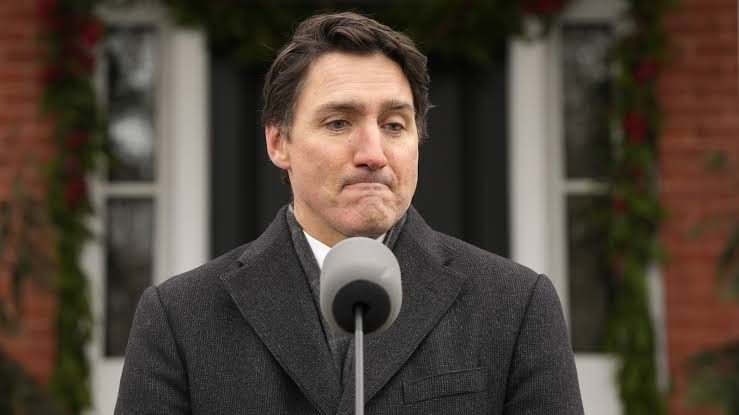Justin Trudeau announced his resignation as Prime Minister of Canada and leader of the Liberal Party on Monday, signalling the end of an era in Canadian politics. Trudeau will remain in office until the party selects a new leader, though the transition could occur swiftly.
Trudeau’s resignation comes amidst heightened tensions between Canada and India, following his controversial allegations regarding the killing of Khalistani activist Hardeep Singh Nijjar on Canadian soil. Trudeau accused the Indian government of orchestrating the assassination, a claim firmly denied by New Delhi. With no substantive evidence provided, the allegations have deepened mistrust between the two nations. As Trudeau steps down, the future of Canada-India relations remains uncertain.
Trudeau’s departure raises questions about the direction of Canada’s foreign policy, particularly towards India. Whether the Liberal Party’s new leader will maintain Trudeau’s critical stance or seek a more conciliatory approach remains to be seen. If the Liberals manage to retain power, the next leader will need to navigate a delicate balance between political tensions and economic interests with India, especially regarding the Nijjar case and strained diplomatic ties.
The Conservative Party, under leader Pierre Poilievre, may also see an opportunity to reshape Canada’s foreign policy. Poilievre has been critical of Trudeau’s handling of relations with India and may prioritise trade and economic collaboration to ease tensions. However, his controversial withdrawal from a Diwali event in 2022 has raised concerns among Canada’s Indian diaspora, making his approach potentially polarising.
Under Trudeau’s leadership, Canada-India trade relations flourished, with bilateral trade reaching $8.4 billion by the end of the 2024 fiscal year. Canada’s exports to India included minerals, potash and industrial chemicals, while India exported pharmaceuticals, electronics and precious stones. Key trade talks, including the Comprehensive Economic Partnership Agreement (CEPA), remain a significant focus.
The transition in leadership could impact ongoing trade negotiations. A shift in policy could disrupt Canada’s economic engagement with India, a development closely watched by both nations. Maintaining or altering the current trajectory will be critical for the future of bilateral economic cooperation.
One of Trudeau’s most debated legacies has been his immigration policies, particularly the termination of the fast-track study visa program, SDS. This decision affected over 427,000 Indian students in Canada and reduced the number of international student permits by 35% this year, with an additional 10% reduction planned for next year. The cuts have sparked frustration among the Indian community, a key demographic in Canada’s multicultural landscape.
As the Conservative Party gains traction, Poilievre’s views on immigration could further influence Canada-India relations. He has advocated for a more selective system favouring “highly promising” students and workers, a stance that has drawn both support and criticism. His policies could either strengthen economic migration ties or alienate sections of the Indian community.
Trudeau’s resignation marks a pivotal moment for Canada’s political landscape and its relations with India. As the Liberal Party prepares to select a new leader, the implications for trade, immigration and diplomacy are profound.
Also Read: Gujarat: Police Use Tear Gas, Lathi Charge to Disperse Mob in Rajkot Village













